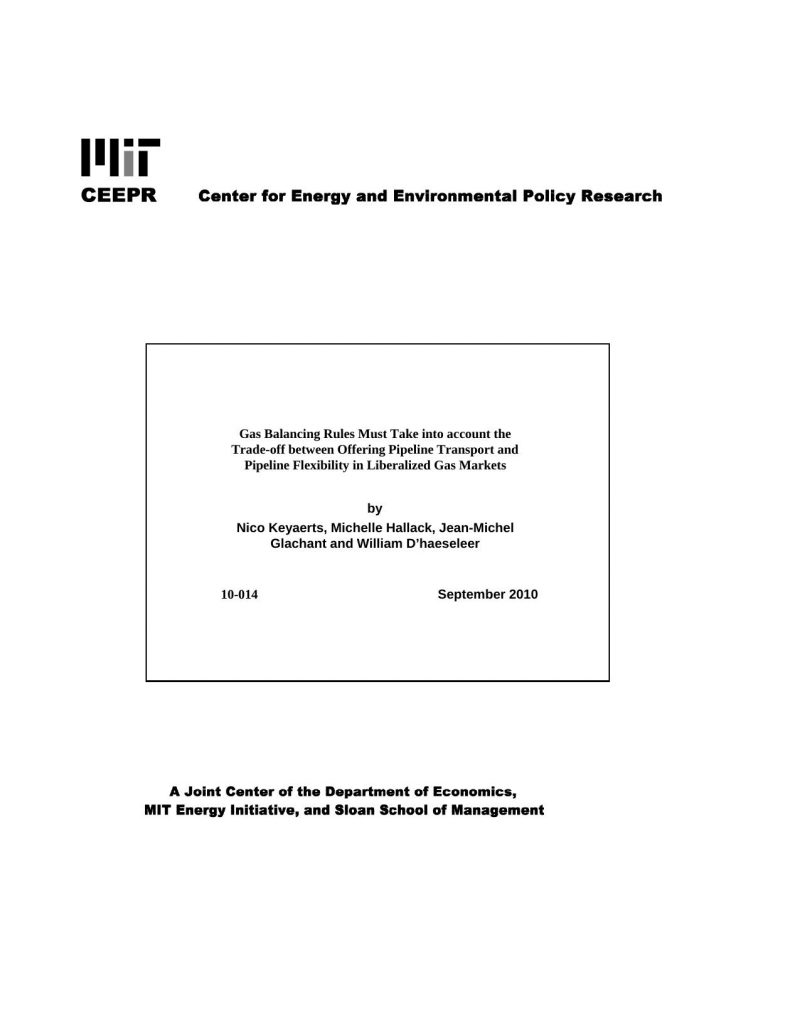Gas Balancing Rules Must Take into account the Trade-off between Offering Pipeline Transport and Pipeline Flexibility in Liberalized Gas Markets
Nico Keyaerts, Michelle Hallack, Jean-Michel Glachant and William D'haeseleer
10-Sep
This paper analyses the value and cost of line-pack flexibility in liberalized gas markets through the examination of the techno-economic characteristics of gas transport pipelines and the trade-offs between the different ways to use the infrastructure: transport and flexibility. Line-pack flexibility is becoming increasingly important as a tool to balance gas supply and demand over different periods. In the European liberalized market context, a monopolist unbundled network operator offers regulated transport services and flexibility (balancing) services according to the network code and the balancing rules. Therefore, gas policy makers should understand the role and consequences of line-pack regulation. The analysis shows that the line-pack flexibility service has an important economic value for the shippers and the TSO. Furthermore, the analysis identifies distorting effects in the gas market due to inadequate regulation of line-pack flexibility: by disregarding the fixed cost of the flexibility in the balancing rules, the overall efficiency of the gas system is decreased. Because a full market based approach to line-pack pricing is unlikely, a framework is presented to calculate a cost reflective price for pipeline flexibility based on the trade-offs and opportunity costs between the right to use the line-pack flexibility and the provision of transport services.



